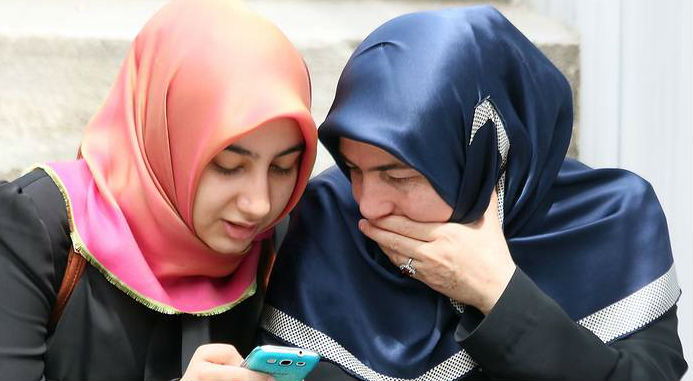How Governments Reward Islam While Persecuting Christians
The No. 1 thing I heard from friends, family and acquaintances when they heard I was going to Central Asia was “Oh, the ‘stans.’ … I never really know where to find those on a map, or much about those countries.”
Most people don’t know much about Central Asia other than that a lot of the countries there end in “stan.” Perhaps it is because most are relatively new countries (formed in the early 1990s after the fall of the Soviet Union). But this is a region that those of us who care about human rights and religious freedom need to become very familiar with, as Christian persecution is experienced here from almost every angle.
Most Christians from Central Asia are beginning to experience persecution from both the state and local governments. In the name of fighting against extremism, governments have passed strict laws to limit the influence of religious institutions and individuals. The problem? They are really only enforcing these laws for Christians, not Muslims.
For example, a law prevents a religious building from being within 500 feet of a school. As I was driving with a Christian in one of these countries, he pointed to a large mosque and said, “This is brand new … do you see what is next door to it?” Next door stood a large primary school that had clearly been there for several years. My companion continued saying, “A pastor friend of mine just had his church shut down last month by the government because a new school was built 350 feet away.”
Many churches in this region try to follow the correct steps to be registered with the state, but experience unimaginable obstacles while doing so. The process should only take a couple months, with one set of fees, but many churches experience pushback and requests for additional fees or bribes. If they pay them, their application may still take several years to be processed or may not ever be approved at all. If they don’t pay the additional fees demanded (fees above and beyond what would be required of non-Christians and are not legal), they will never be able to register their churches.
The governments of these countries are starting to ban more and more Christian books, especially books about reaching out to Muslims. If Christians are caught with any of these banned books, they can face several years in prison.
For Christians in these nations, neighbors and other members of the community often only serve to exacerbate the persecution brought by government. For example, one church was forced to meet in secret after its neighbors petitioned the government to close the church down. If members of a church are caught meeting in secret, they can face several years of imprisonment or a fine equivalent of a two years’ average salary.
In many parts of Central Asia, Christians also face persecution from their own family members. Most people in the region come from a Muslim background, especially ethnic minorities. If their conversion to the Christian faith is discovered, many Christians are threatened, beaten or kicked out of their homes. This is why Open Doors has a safe-house ministry in this region. When new believers are forced to be on the run, we can offer them a safe place to stay, so they can remain in their country. Whenever it is safe to do so, the new believers can return back to their hometowns, where they can share the gospel with their families and communities.
One of the most underreported forms of persecution in this region is from Muslim extremists, including ISIS. Christians have received chilling notes from ISIS on the doors of their homes telling them if they don’t leave, they will be killed. Others have had Muslim extremists show up at their homes and threaten to kill them for their faith in Christ.
Central Asia is unlike any other region—facing persecution in almost every aspect of life, be it family, society, government and radicalized extremists. Yet, in spite of all this persecution, the church is growing!
Central Asia has a relatively young church community, with most Christians in their 40s or younger, many having heard the gospel message for the first time after the Soviet Union collapsed. In spite of all the obstacles, they are choosing to be bold in their faith, and are reaching out to their neighbors—even their persecutors.
The top prayer request I continually heard from Christians in this region was that God would equip them to remain bold in their faith. They pray for the courage not give into bribes, to continue to meet together in spite of the obstacles and to continue to share the gospel message with their families and neighbors.
Open Doors is currently hosting a letter-writing campaign for Christians in Central Asia. On the Open Doors website, visitors can write a quick note of encouragement to spur these Christian on and let them know that the body of Christ around the world is praying for them as they continue to be the light of Christ in this region.
You can learn more about other ways to pray for, encourage and offer practical assistance to Christians in Central Asia at opendoorsusa.org. {eoa}
Emily Fuentes is the director of communications at Open Doors USA, which works to equip and encourage Christians living in dangerous circumstances with the threat of persecution and equips the Western church to advocate on their behalf.




























































